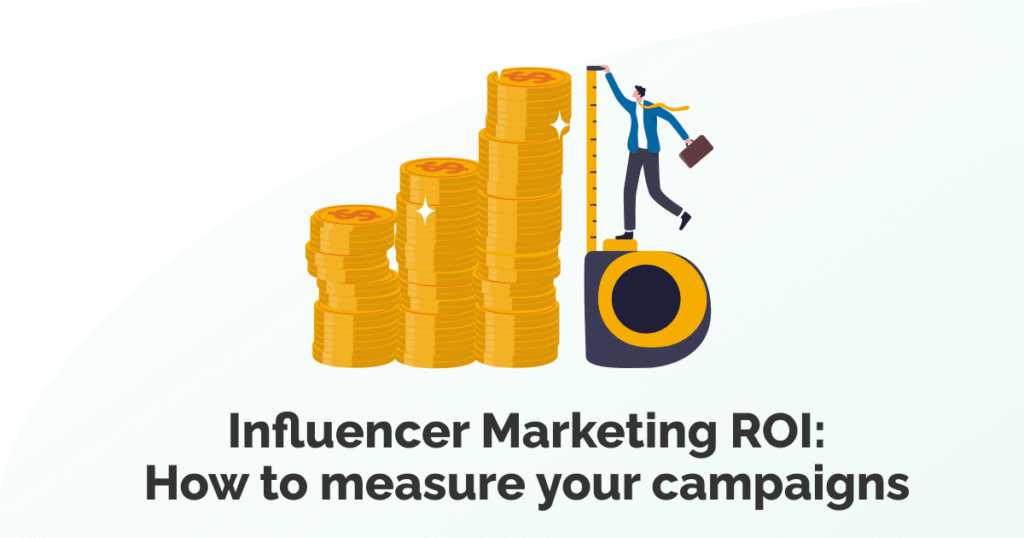An affordable yet skilled web design company can create a custom website that helps your business get found online and convert more visitors. This comprehensive 4000+ word guide covers tips for identifying the top affordable web design firms that deliver results.
Introduction
Your website is often the first touchpoint between prospects and your company in the digital age. Investing in a professionally designed website that showcases your brand and offerings is crucial, but cost can be a barrier for small businesses and startups.
Thankfully there are many affordable and creative web design companies that offer quality website design services at accessible price points for small businesses. This guide will help you identify and evaluate top contenders.
Benefits of Working With a Web Design Company
While DIY website builders exist, partnering with a web design firm has many advantages:
Expertise With Best Practices
Experienced design firms stay updated on web design trends, user preferences, and platform capabilities. They have technical knowledge to implement best practices related to:
- Site architecture and navigation
- Optimized pagespeed and mobile responsiveness
- Integrations with sales and marketing tools
- SEO fundamentals and content structure
Strategic Consulting
A good agency acts as an expert consultant, not just taking orders. They’ll provide recommendations and insights tailored to your specific business goals, target users, and technical needs.
Custom Design
Agencies can create a completely unique website design for your brand. No restrictive templates or cookie-cutter sites. Design elevates your brand image.
Ownership of Final Product
You fully own the final website design, code, and content assets delivered by an agency. This gives you flexibility.
Ongoing Optimization
Top agencies provide ongoing maintenance, updates and improvements to your site to keep pace with Google algorithm changes, new features etc.
The right partner provides both strategic and technical expertise you likely lack in-house.
Types of Web Design Firms
Many types of agencies offer web design services. Being aware of the landscape helps match prospects to your needs.
Freelancers
Independent designers who work solo across projects for multiple clients. Often have lower rates but limited capabilities.
Web Design Agencies
Design-focused firms specializing in creating attractive, custom websites for brands and small businesses across industries.
Digital Agencies
Full-service digital marketing agencies that offer web design as part of their suite of services like SEO, PPC, social media marketing.
Web Development Companies
Technical development firms focused on programming complex or large-scale sites and web applications.
For most small businesses, working with a dedicated local web design agency often provides the best fit of skills and budgets.
Defining Your Website Goals
Having clearly defined goals is crucial when starting your search. Typical goals that impact how an agency approaches your project include:
Brand Building
If your priority is enhancing brand recognition and credibility, the agency will focus more on visual identity and user experience.
Lead Generation
To capture more prospect contact information, the site design will emphasize clear calls-to-action, gated content offers and forms.
Ecommerce Sales
For online sales of products/services, the agency will implement ecommerce functionality, product pages and shopping cart optimization.
Customer Support
To improve post-purchase support, the site can provide self-help resources through knowledge bases, FAQs and community forums.
The agency will tailor both design and technical features towards your stated goals. Share any useful metrics or past performance data that informs priorities.
Setting Your Budget Expectations
When researching agencies, you should set expectations around what you can invest so prospects align with your budget. Typical factors impacting affordable website cost:
- Number of pages to design
- Level of visual customization
- New site vs redesign of existing site
- Basic brochure vs data-driven web application
- Integrations needed with other software
- Hosting, maintenance and ongoing optimization
Often the level of functionality and integrations add more to cost than pure design and content. For smaller sites, expect to budget around $3,000-$5,000+ to work with a quality designer.
Where to Look for Prospective Web Design Firms
Cast a wide net across these sources to identify top contenders:
Google and Yelp
Search for “affordable web design near me” on Google and consult Yelp reviews. Focus on patterns across reviews more so than outlier complaints or praise.
Local Business Referrals
Ask client-facing service providers you trust like bankers, accountants, consultants etc. for referrals to affordable web designers they know deliver results for small business clients.
Directories
Consult specialist B2B directories like Clutch, GoodFirms and Sortlist that compile and vet agencies. Useful for filtering prospects.
Professional Associations
Many web design companies belong to professional trade organizations and local chambers. Check member directories for additional prospects to evaluate.
Past Client Websites
When viewing an agency’s portfolio, click through to current client sites to judge real-world work beyond mockups. Gauge quality and functions.
Conferences and Networking Events
Attend small business conferences and networking meetups in your city to connect directly with web design professionals.
Cast a wide initial net through these channels to compile a list of viable contenders.
Vetting Prospective Web Design Firms
Once you have identified promising web design prospects either locally or willing to work remotely, the next step is vetting them. Use the following screening criteria:
Online Portfolio
Review the types of website designs and clients featured in their portfolio. Look for visual aesthetics and brands similar to yours. Matching past work to your business increases confidence.
Client Testimonials and Reviews
Prioritize firms with case studies, testimonials and reviews touting positive collaboration experiences, strong communication and results delivered. This indicates satisfied clients.
Industry Specialization
See if the agency lists experience specifically working with clients in your niche and demonstrates unique knowledge of challenges common to your vertical. Expertise can shortcut ramp-up time.
Pricing Transparency
Favor agencies that proactively provide clear pricing on their website or during initial outreach. Transparent rates signal a focus on client value instead of billable hours.
Clear Proposal
Reputable firms will provide a well-scoped proposal outlining project timeline, key milestones, team members, deliverables, and costs without requiring a large upfront deposit.
Website Performance
Gauge technical capabilities by examining the load speed, mobile responsiveness and accessibility of the agency’s own website. These should meet high standards.
SEO Competencies
Evaluate their expertise in SEO and content best practices by reviewing blog content quality, metadata optimization and search visibility of the agency’s site and clients.
Communication Practices
Assess responsiveness to initial inquiries, phone and video meeting processes and overall communication style. The chemistry should be collaborative.
Checking for these signals will help filter to a shortlist of qualified yet affordable contenders for further discovery.
Interviewing Shortlisted Web Design Firms
Scheduling introductory calls or meetings with 3-5 shortlisted prospects is recommended before making a final selection. Use these discussions to directly evaluate fit.
Portfolio Review
Ask to walk through 2-3 past client websites in-depth to hear about their design strategy and capabilities used. Probe with questions.
Project Roadmap
Inquire about their specific process for completing your project from kickoff to launch, including milestones and timeframe.
Team Background
Get bios for the designers who would be assigned to your project to gauge their individual expertise. Check for turnover risk.
Technical Capabilities
Ask about their implementation skills with any must-have tech for your site like integrated ecommerce, user logins, search etc. to confirm competency.
Reporting and Insights
Understand their approach to providing site traffic analytics, SEO recommendations, and optimization reports. Ongoing insights are key.
Retainer Options
Discuss monthly retainer expectations following launch to continue website maintenance, updates and iterative improvements.
Compatibility Assessment
Do a gut check on responsiveness and overall rapport. You should feel comfortable trusting them as an extended advisor.
Use the discovery call to go deeper and validate the shortlist firms can deliver on expectations before making a final decision. Prepare specific scenarios, objectives and questions to probe fit.
Finalizing the Best Web Design Agency
After initial research, vetting and discovery calls, compare options using this decision criteria:
- Case studies and clients in your specific niche
- Balance of creative and technical expertise
- Clear proposals and pricing with no hidden fees
- Easy communication and collaborative style
- Website performance and SEO competencies
- Retainer options for ongoing optimization
- Positive reviews and client referrals
- Personality and cultural fit
Draft an in-depth RFP outlining your goals, budget, timeline and requirements and evaluate final proposals. Weigh the factors above most important to your scenario. Conduct reference checks on the frontrunner(s).
Allowing time for proper due diligence reduces project risk and leads to an optimal affordable web design partner equipped to meet your needs and deliver ROI.
Managing the Web Design Process
Follow proven project management principles once kicking off the engagement:
Schedule Checkpoints
Agree to key milestone dates in the contract for items like design review, content finalization, testing, launch etc. to maintain momentum.
Share Brand Guidelines
Provide the agency any useful brand style guides, imagery, color palettes, and content early to align efforts.
Assign Internal Resources
Dedicate team members on your end to collaborate with the agency and assist with any content sourcing or technical decisions.
Review Deliverables Promptly
Don’t allow feedback lag on items like site maps, wireframes, or design mockups. Quick approvals keep projects on schedule.
Clarify Requirements Early
Communicate any new functional requirements immediately rather than later to avoid scope creep.
Test Iteratively
Review site in stages to provide feedback on information architecture, design, content etc. before full development.
Monitor Analytics
After launch, regularly share site analytics with your agency and evaluate results against KPIs to guide optimization.
Effective collaboration, prompt internal responses, and clear communication set your custom affordable website project up for success.
Takeaways for Your Affordable Website Project
Key points to remember when engaging an affordable web design partner:
- Set clear goals and success metrics upfront tied to business objectives
- Research multiple options like freelancers, design firms, agencies etc.
- Vet prospects thoroughly across important criteria
- Interview shortlisted firms to determine best fit
- Share detailed requirements and guidelines
- Collaborate closely throughout design and development
- Make timely decisions to avoid delays
- Leverage analytics to optimize site after launch
Investing ample time upfront in the selection process pays dividends with a website that delivers impactful ROI for your small business at an accessible price point.
Conclusion
While cost is often a major factor, affordable doesn’t have to mean cheap or cookie-cutter. The ideal web design partner should balance creative skills and technical expertise with pricing appropriate for small business budgets.
Following a thorough discovery process using the steps in this guide will help you find the right match. The end result will be a high-quality custom website tuned to your brand and objectives without breaking the bank. With clear goals and selective vetting, you can find an affordable website design partner equipped to meet your unique business needs.







